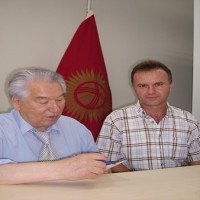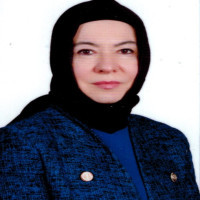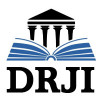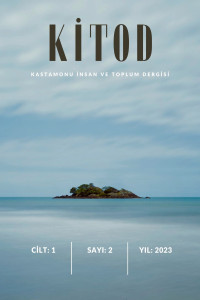Research Article
Image Presentation
Aim & Scope
* To host scientific and current developments in the field of social sciences.
* To be an easily accessible and prestigious journal that allows academicians to publish.
* To provide readers with the opportunity to follow scientific developments through open access.
All sub-headings of all humanities and social sciences covers.
Author Guidelines
TEXT STYLE: Times New Roman
REFERENCES: APA 7 citation system should be used.
SIDE SPACES: 4 cm from the top and 3 cm from the other edges should be left.
ARTICLE LENGTH: The article should be a maximum of 30 pages including all pages.
PARAGRAPH: It should be indented, 6 pt from the front and 6 pt from the end.
ORCID: Authors must upload their ORCID number to the system. If you do not have an ORCID number, you can get it from https://orcid.org/.
TEXT WRITING RULES:
* Article Title: First letter capitalized only (sentence order), 14 points, bold, centered, front 0 - last 18 pt spacing, 1.5 line spacing.
* Author Names: The first letter of the name, the whole surname is capital, 12 pt, Italic, centered, 18 pt from the front - 18 pt from the end, 1.5 line spacing.
* Abstract: 100-250 words, no indentation, 10 pt, front 18 - last 6 pt spacing, 1.15 line spacing.
* Keywords: 3 to 8, in order from general to specific, only the first letter in compound words is capitalized.
* English Title: First letter capitalized only (sentence order), 12 pt, bold, centered, front 12 - last 12 pt spacing, 1.5 line spacing.
* Abstract: 100-250 words, no indentation, 10 font size, 12-to-last 6 pt spacing, 1.15 line spacing.
* Keywords: 3 to 8, in order from general to specific.
* Main Text Headings: All caps, 6 points, bold, left aligned.
* Level I Text Title: Initial letters only capitalized, 12 point, bold, left aligned.
* II. Level Text: Sentence order, Italic, 12 point, bold, left aligned.
* Text: Indented sentence spelling, 6 pt, front 6-to-last 6 pt spacing, 1.5 line spacing
* Result Title: All large, 12 point, bold left aligned.
* Result Text: Indented sentence writing order, 6 pt, front 6 pt, last 6 pt spacing, 1.5 line spacing.
* Bibliography Title: Entire capital, 12 pt, bold left aligned.
* Sources: APA 7, in hanging order.
Ethical Principles and Publication Policy
1. Behavioral Criteria That Author(s) Must Follow
Writers),
1) They do not claim copyright for the articles they send to KJHS.
2) They can send only original works to KJHS.
3) They prepare the bibliography list completely and specify the cited sources.
4) They have the right to withdraw their manuscripts before the article evaluation process begins. However, they must notify this in writing to the editor appointed for the article. The final decision for the article is taken by the KJHS Editorial Board. An article that has passed the peer-review stage cannot be withdrawn.
5) They declare and accept that there is no potential conflict of interest between them in their studies with more than one author.
6) They are obliged to send all kinds of documents and data requested by the editors or referees regarding the article.
7) They are responsible for informing the editor about any mistakes they discover later in their articles. In addition, they have to cooperate in line with the editor's demands.
8) They do not propose to change author responsibilities (add author, change author order, remove author, etc.) for articles whose evaluation process has begun.
9) that the work he sent to KJHS is not contrary to scientific research and publication ethics; plagiarism, forgery, distortion, republishing, slicing, unfair authorship and other ethical violations (not clearly stating the support people, institutions or organizations and their contributions to the research in the publications of supported research, not complying with ethical rules in research on humans and animals, It is deemed to have ensured that it does not include situations such as sharing the information contained in it with others before it is published, misusing the resources, places, facilities and devices provided or allocated for scientific research. Responsible for cases that have been determined otherwise.
2. Behavioral Criteria That Editors Must Follow
KJHS Editorial Board,
1) They make an effort to meet the information needs of readers and writers.
2) They support freedom of thought.
3) Organize and publish the "Blind Refereeing and Evaluation Process" in a clear, understandable and accountable manner; They prevent deviations that may occur in the defined processes.
4) They publish the "Author's Guide", which includes detailed topics that the authors will need, and ensure that the guide is up-to-date as needed.
5) Editor appointed for the article by the KJHS Editorial Board; It carries out the processes to improve the quality of the articles to be published in the journal. It conducts its business processes with respect to intellectual property rights and without compromising ethical standards.
6) Acts openly and transparently in matters that require correction and explanation.
7) It decides by considering the knowledge, skills and experience expectations that all readers, researchers and practitioners need.
8) Pays attention to the fact that the published articles provide scientific contribution to the reader, researcher, practitioner and are original.
9) Considers feedback from readers, researchers and practitioners; Provides descriptive and informative feedback.
10) After pre-checks (plagiarism scanning, suitability for spelling and bibliography, existence of a copyright form signed by the authors) of each article sent to KJHS, it sends the article to at least two referees for evaluation.
11) If one of the two referees expresses a negative opinion, he/she forwards the article to a third referee or gives the final decision.
12) It ensures that there is no conflict of interest between the authors and the referees in the selection and assignment of the referees.
13) Keeps the identity information of the referees confidential for blind refereeing.
14) Encourages referees to evaluate the work in an impartial, scientific and objective language.
15) Makes the final decision on whether an article can be published considering the original value of the article, its validity, clarity of expression, and its suitability with the aims and objectives of the journal.
3. Behavioral Criteria That Judges Must Follow
Referees,
1) They only make assessments in their areas of expertise.
2) They make an objective assessment. They do not allow nationality, gender, religious beliefs, political views and commercial concerns to influence the assessment.
3) They cannot have a conflict of interest with the authors or sponsors of the article.
4) They carry out the evaluation process in secrecy.
5) They can use the article they have evaluated only after the article is published and only for scientific purposes.
6) They express their views using polite and constructive language.
7) If they detect a situation contrary to scientific and ethical principles in the article they have reviewed, they inform the editor.
4. Behavioral Criteria That Publisher Must Follow
publisher,
1) It secures the work of editors, reviewers and authors.
2) It respects the property rights of the published articles and keeps the record in the archive.
3) KÜİTBFD keeps the internet access to the database open.
4) Before the article is published, it determines that the article does not contain plagiarism.
Everyone involved in the article publishing process agrees to abide by these rules. Editors, referees and authors involved in this process are expected to inform aytekindemircioglu@kastamonu.edu.tr if they detect an error or mistake.
Price Policy
Free of charge
Indexes
Journal Boards
Editöe-in-Chief

Deputy Editörs in Chief



Section Editors






Advisory Board






















Secretariat

Language editors

Kastamonu Journal of Human and Society - KJHShttps://dergipark.org.tr/tr/download/journal-file/29447






